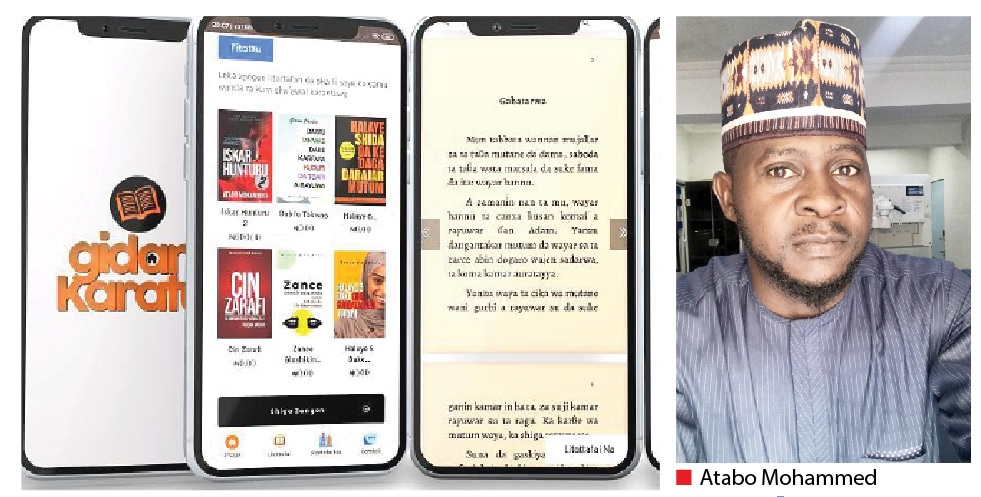ABU graduate: Why I developed Hausa reading, publishing app
Mohammed Atabo is a graduate of the Ahmadu Bello University, Zaria, and hails from Kontagora, Niger State. The IT and data science enthusiast in this interview, speaks on his reading app ‘Gidan Karatu’. Daily Trust: Tell us about the app you developed and what it does? Mohammed Atabo: The app is called Gidan Karatu. It […]

Mohammed Atabo hails from Kontagora, Niger State, speaks on his Hausa reading app ‘Gidan Karatu’.
Mohammed Atabo is a graduate of the Ahmadu Bello University, Zaria, and hails from Kontagora, Niger State. The IT and data science enthusiast in this interview, speaks on his reading app ‘Gidan Karatu’.
Daily Trust: Tell us about the app you developed and what it does?
Mohammed Atabo: The app is called Gidan Karatu. It is a publishing and reading platform for Hausa Literature. It is also equipped with a social networking platform called Dandali, where readers and authors can meet and interact.
Dandali is like Facebook. It is secure and readers can access books only if they buy, however, they cannot share the manuscript with others. This way, writers can make something. Also, readers who wish to know more about their favourite authors can do that through the author’s page and social link which can be accessed by readers.
DT: What was the motive behind developing the App?
Atabo: I grew up reading Hausa books like millions of other Hausa readers. Unfortunately, those golden pieces of literature are no longer available today because they were not properly archived either electronically or in hard copy. With Gidan Karatu, authors now have a secure platform to save their works for generations to come.
Currently, we have authors who do not have their published copies years after publishing, and the few readers that own copies of the book have refused to allow the authors a photocopy without being paid large sums of money. And that’s not good for literature.
I’m also moved by the level of education proliferation in the North which as you know is low compared to other regions. I believe if people that are less privileged could have easier access to education and literary pieces, their interest to pursue higher education will be stirred. So, the App is the first step.
DT: How long did it take you to build the app?
Atabo: It took me three years. The reason being that I needed to make it attractive to both writers and readers. I had to write some books and called on my friends to write free Hausa self-help articles so that by the time we launch the App, people would have something to read. We wrote more than 500, 000 words of Hausa literature. We even have a foreign book translated into Hausa.
DT: How can people access the App?
Atabo: The App is free and available on Google Play Store
DT: What challenges did you face while developing the App?
Atabo: The biggest is the financial challenge; I needed to build an easy and secure App so I had to purchase plug-ins worth thousands of dollars. It was really difficult for me, especially with the forex restrictions. I kept going to the bureau de change to buy dollars almost every month when I had some money. I still can’t afford to hire a staff or rent an office space. I had to manage on my own.
DT: What kind of support do you want from the government at this point?
Atabo: Government support for projects as big as this cannot be overemphasized. And like I mentioned above, I need financial support to actualize this project for the service of the over 40 million target audience we plan to reach in the next three years.
